IBAC calls for overhaul of planning laws following Operation Sandon
The man at the centre of IBAC’s corruption probe is set to lash out at the watchdog, accusing it of misleading the public and promising “never before seen evidence”.
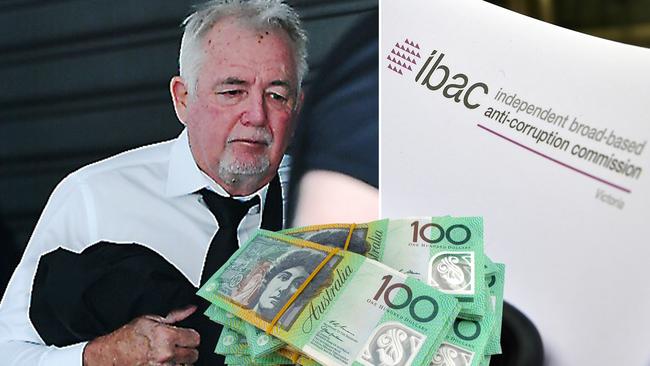
Victoria
Don't miss out on the headlines from Victoria. Followed categories will be added to My News.
The man at the centre of IBAC’s latest corruption probe is set to lash out at the watchdog next week, accusing it of misleading the public and promising “never before seen evidence.”
Developer John Woodman will make the comments on Monday, less than a week after the release of an Independent Broad-based Anti-corruption Commission report into his dealings.
During its investigation, named Operation Sandon, IBAC found Mr Woodman had paid more than $550,000 each to Casey councillors Sam Aziz and Geoff Ablett for their alleged help securing land deals favourable to his company or those he worked for.
It also found he donated heavily to politicians across the divide to help him secure access to senior decision-makers and lobby them over key planning issues related to these projects.
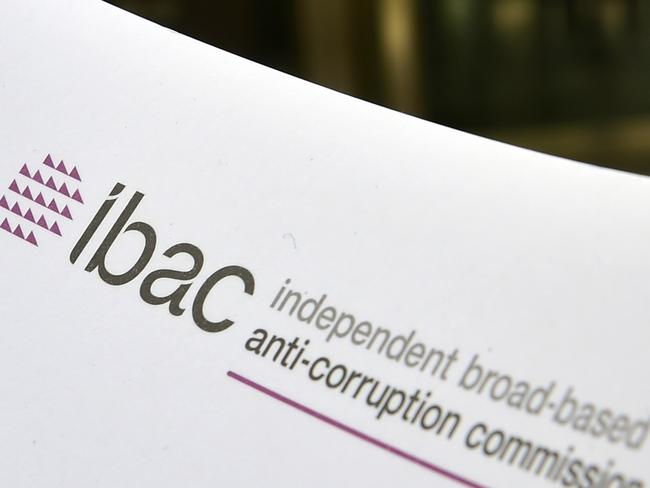
Before the report was released, former councillor Amanda Stapledon took her own life while she knew she was part of the investigation, prompting criticism from the state coroner and for IBAC to review its handling of witnesses.
Mr Woodman, Mr Aziz and others named in the report will now speak publicly on Monday to attack the commission’s investigation.
“We the undersigned, a group of victims whose lives have been ruined forever by IBAC’s reckless and dishonest actions during Operation Sandon, will be holding a media conference Monday following the release of the special report,” an alert said.
“The purpose of the media conference is to expose IBAC’s own misconduct in this matter, which has led to many devastating outcomes for the witnesses, including the tragic suicide of Ms Amanda Stapledon.
“We will present evidence never before seen by the public.
“We believe that the presentation of this special report constitutes Contempt of the Victorian parliament due to its misleading content.
“The conference will be led by Mr John Woodman, one of the key targets of Operation Sandon. “
IBAC is not commenting on the group’s comments and is currently preparing evidence collected during the investigation which will be handed over to the Director of Public Prosecutions for consideration of charges.
The report also included 34 recommendations including a significant overhaul that would take away powers over major planning decisions from local councils.
Cash for access laid bare in IBAC report
Ferrari-driving developer John Woodman paid more than $1.5m to political figures and councillors in a bid to “improperly” influence planning decisions in Melbourne’s southeast suburbs.
A scathing report by the Independent Broad-based Anti-Corruption Commission has called for a complete overhaul of planning and local government laws after its probe exposed a rotten culture that allowed cash to be exchanged for political access and favours.
Its four-year investigation, dubbed Operation Sandon, found Mr Woodman paid to access politicians, including Premier Daniel Andrews and senior ministers who were involved in planning decisions.
In a sign of Mr Woodman’s influence, it was revealed Mr Andrews met with the developer on multiple occasions, and in 2019 asked a lobbyist to pass on his regret about a government decision to defer a decision on a planning matter that had impacted the developer.
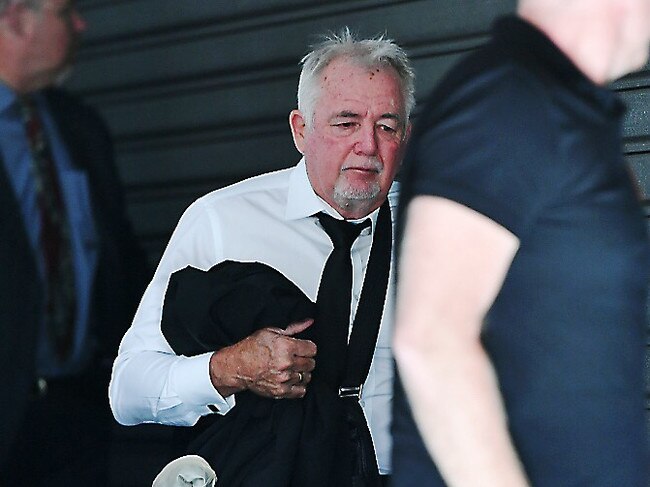
The most critical findings related to two Casey Councillors, Sam Aziz and Geoff Ablett, who actively worked to help Mr Woodman and his clients get favourable planning decisions that were worth tens of million of dollars.
The two former mayors received more than $550,000 in cash or benefits from the developer and his related companies over the course of a decade, but repeatedly failed to declare conflicts of interest.
The IBAC found Mr Woodman regularly used “donations” to shape decisions benefiting his associated business or his clients.
“The investigation found that for over a decade, Mr Woodman improperly sought to influence Casey councillors to facilitate favourable Council decisions,” the report said.
“This conduct was able to flourish unchecked because the Casey Council lacked adequate safeguards to ensure core standards of integrity were met.
“In a response to IBAC, Mr Woodman asserted that none of the benefits he provided were illegal or improper. IBAC does not accept this assertion.
“The investigation also found that Mr Woodman sought to influence state government decision- making by paying lobbyists, and cultivating relationships with or funding state political candidates, political staff, MPs and ministers.”
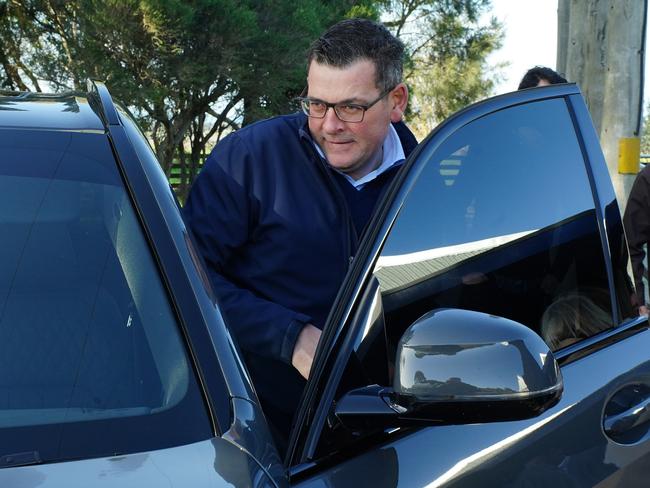
The long-running probe, which began in 2017 and included 40 days of public examinations before being bogged down by court disputes, made 34 recommendations including to:
• Remove major planning decisions from councils.
• Reform donations and lobbying laws, including faster reporting times of payments and a potential ban on donations from developers and other high-risk industries.
• Change local government laws to set higher standards for councillor behaviour and impose harsher penalties for those who break them.
• Have the Premier set up an interdepartmental task force to oversee all recommendations, and report back on all recommendations by January, 2025.
IBAC found Mr Woodman and his associates sought to influence decisions in Casey to their favour, including directing councillors to shape decisions that came before them.
One of the most shocking examples of this was the attempted rezoning of 200ha of commercial land in Cranbourne West that landowners, including Leighton Properties, wanted to develop into residential estates, increasing its land value by an estimated $35m.
Leighton development manager Thomas Kenessey hired Mr Woodman and consultant Megan Schutz to come up with a plan to get the change supported by council, government agencies and the minister.
“Each received around $600,000-$700,000 for their services,” the report said.
“Mr Woodman and Mr Kenessey were also entitled to a success fee if the amendment was approved, which, in Mr Woodman’s case, would have been an additional $2 million.”
They used their relationships with councillors, including Mr Aziz and Mr Ablett, to initiate and push the planning change and funded the creation of a residents group to lobby for their interests while claiming to be the “voice of the community”.
This came even as council staff had issues with the proposal.
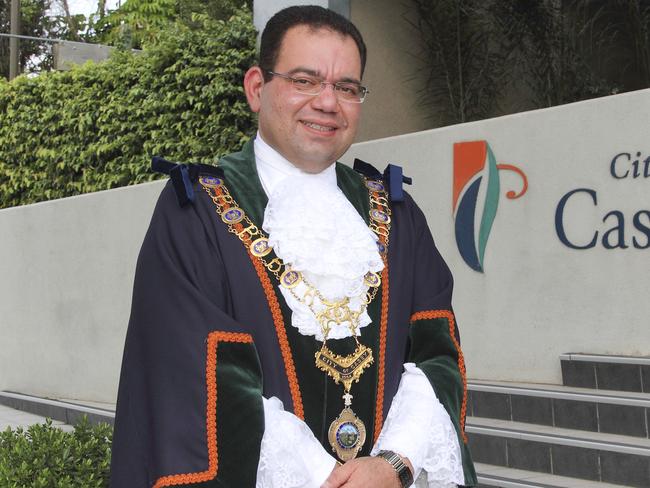
Labor lobbyist Phil Staindl was also engaged to help access senior politicians and briefed MPs to assist the cause.
Over this time large donations were made to local politicians or Labor fundraising arm Progressive Business, which helped secure Mr Woodman’s attendance at key events.
“Through Mr Staindl and Progressive Business, Mr Woodman obtained access to the Premier, Deputy Premier, Treasurer, Attorney-General, Minister for Roads and Minister for Education,” the report said.
“Each held portfolios relevant to planning decisions. In evidence, Mr Staindl explained that contact with ministers other than the Minister for Planning was necessary, because large developments often involved more than one government department.”
IBAC found that two former Labor MPs from the area, Jude Perera and Judith Graley, had “promoted” the issue with the planning minister but did not appear to declare they’d been lobbied by Mr Woodman’s associates.
They both had received donations from the developer.
Ms Graley received $20,000 to her campaign but denied knowing this to IBAC and said she never promoted his interests.
Mr Perera was said to have backed the proposal. The commission said during times when he was ill his electorate officer had worked with Ms Schutz on supporting the rezoning.
Current Cranbourne MP Pauline Richards, who replaced Mr Perera, was also targeted by Mr Woodman with financial support and meetings, however there was no evidence she had lobbied the minister about the issue.
Despite significant effort to get the contentious rezoning approved, it was delayed by the minister in 2018 and knocked back in 2020 well after attention was drawn to the issue.
However IBAC also detailed three other Casey planning decisions in which Mr Woodman and his colleagues got the result they wanted.
This included reducing requirements for road width and open space so an estate could sell more land, against recommendations from council officers, and passing on the cost of constructing an intersection to another company.
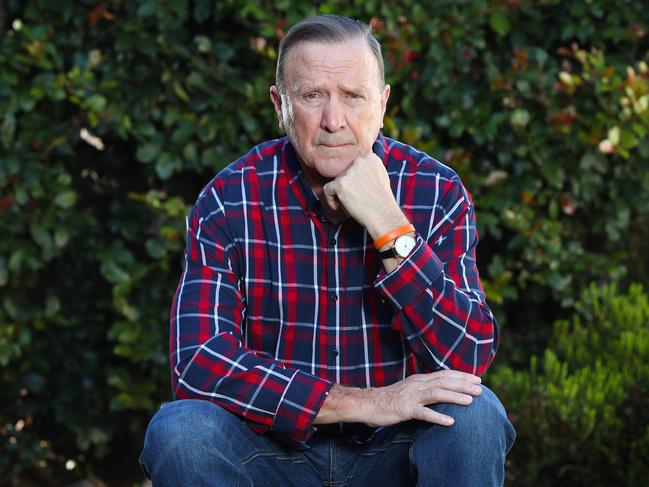
Mr Woodman, his son and political lobbyists successfully pushed for 108 acres of rural land in Cranbourne South to be rezoned for residential construction.
One councillor, who was receiving financial support for their re-election campaign, moved a motion adding the change to the planning amendments without declaring a conflict of interest.
In its report, IBAC used the process as an example of how much money influence campaigns could achieve.
The land was bought for $400,000 in the 1960s and sold for $55m in 2018 after it was rezoned.
Throughout the years, the commission also found Mr Woodman went to considerable efforts to keep his efforts out of the spotlight.
When donating to a federal MP, his personal assistant contacted the politician’s campaign office suggesting the $20,000 contribution be split between two different companies to ensure they fell under the threshold for public disclosure.
He also sent emails to the private addresses of Mr Aziz and when questioned by IBAC if this was to avoid being discovered he said “One would assume so, sir”.
Mr Aziz and Mr Ablett were the only councillors to receive “direct benefits” of cash payments for their support, however the commission found Mr Woodman tried to influence others through donating to their campaigns or causes that benefited them.
“Many of the elaborate financial arrangements between Mr Woodman and these two councillors were designed to conceal the nature or source of the funds and to give them the appearance of legitimacy,” the report said.
IBAC Acting Commissioner Stephen Farrow said it was vital planning decisions that shaped people’s lives be free from corruption and improper influence.
“We found that safeguards around deciding whether to amend a planning scheme were bypassed,” he said.
“The planning amendments we looked at as part of this operation reached the desks of decision makers in local and state government, without strategic reasons for their implementation.
“The investigation demonstrated how ministers, members of parliament, councillors, ministerial advisers and electorate officers may be targeted by lobbyists, and how limitations in the current regulation of lobbyists present corruption vulnerabilities.”
Corruption findings ‘utterly predictable’
Victorian Greens leader Samantha Ratnam said the government’s failure to strengthen its lobbying laws made findings of corruption “utterly predictable and almost inevitable”.
The Greens have called on the government to legislate codes of conduct for Ministers and lobbyists, make ministerial diaries public in line with laws in NSW and Queensland, ban political donations from the property industry and apply the state’s donation cap laws to local government.
“It’s no surprise that we have planning dysfunction when government MPs and Ministers spend more time speaking to wealthy property developers for donations, than housing experts and renters,” Dr Ratnam said.
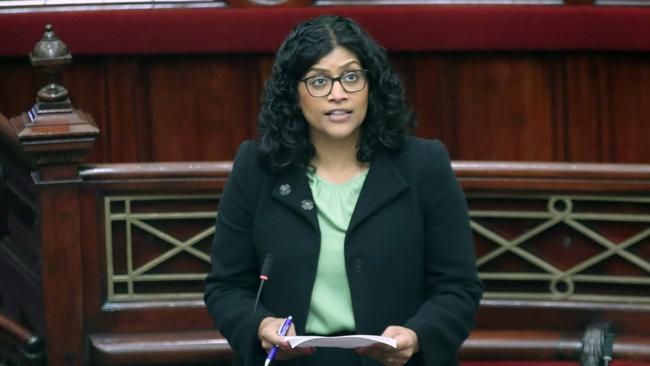
“If the Victorian Labor government is going to remove planning powers from councils without strengthening the state’s integrity laws, it will just be shifting corruption to state government MPs and Ministers.”
Victorian Greens integrity spokesman, Tim Read, said while other states had continuously strengthened their lobbyist laws, the Andrews government “continued to foster an insular and opaque culture of lobbying politicians resembling an old boys’ club”.
“It shouldn’t take four IBAC reports, and close to a decade for a government to strengthen lobbying and anti-corruption laws when other states do it immediately,” Dr Read said.
“The Victorian Greens are the only party fighting for the Labor and Liberal parties to introduce stronger political integrity laws.”




